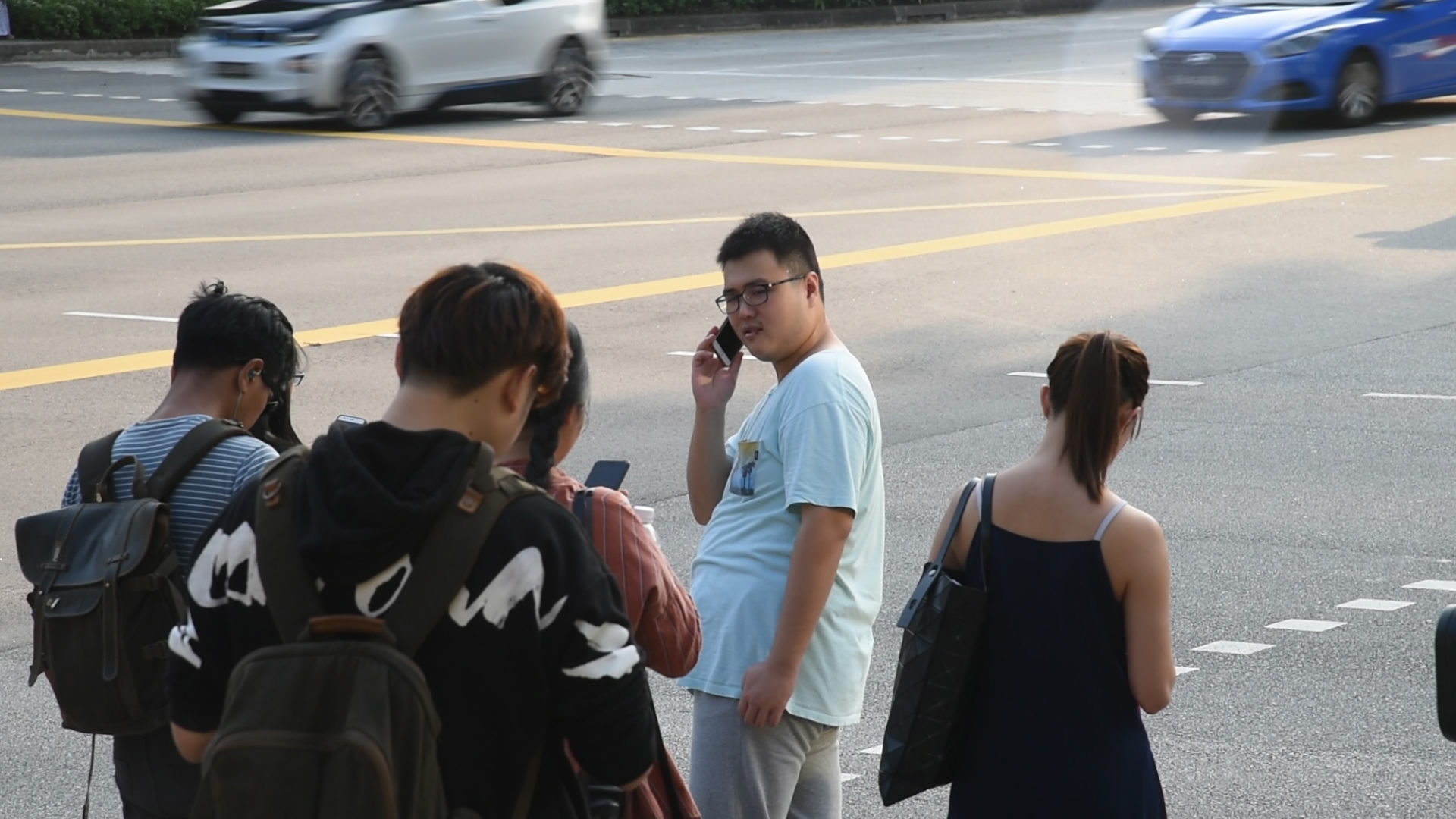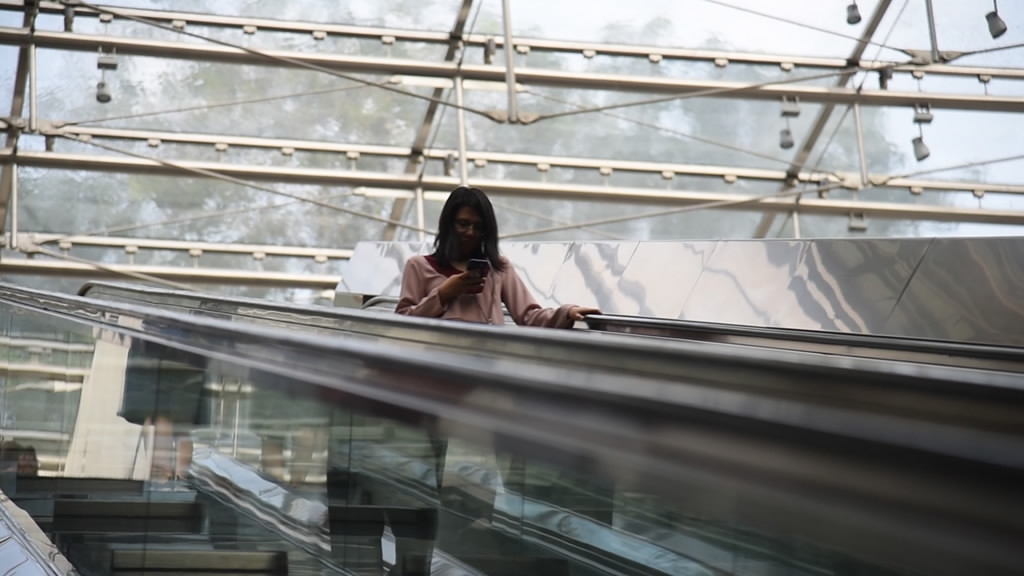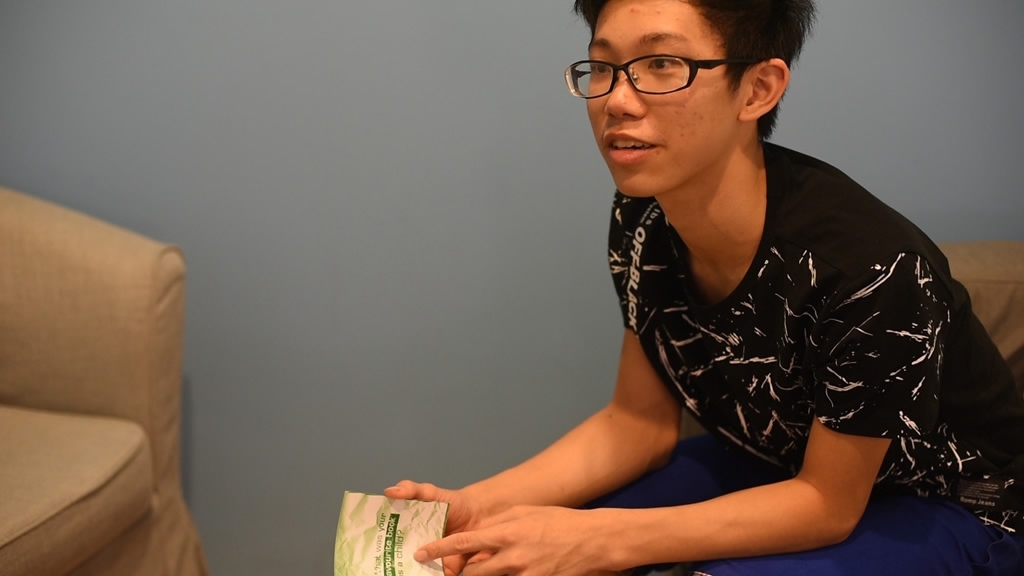
Tech & Sci
11:58, 26-Feb-2018
Youths get smart about smartphone use in Singapore
By Miro Lu

A staggering 95 percent of Singapore’s adult population owns a smartphone, making it the country with the highest smartphone penetration rate in the world.
According to "Savvy Singapore: decoding a digital nation", an Ernst & Young report about Singapore’s digital landscape, three out of four smartphone and tablet users check their devices immediately upon waking up, and just before sleep. One-fourth of Singaporeans use their mobile devices for over five hours a day.
When a device becomes so important, it’s easy to feel lost without it.
Nomophobia, a term coined in 2010, is short for No Mobile Phone Phobia or the anxiety people face when they can’t use their mobile phones.

Three out of four smartphone and tablet users in Singapore check their device immediately upon waking up, and just before sleep. /CGTN Photo
Three out of four smartphone and tablet users in Singapore check their device immediately upon waking up, and just before sleep. /CGTN Photo
Music teacher Terence Yong said, "My whole life is on my (smartphone) calendar, so if I lose my phone, I wouldn’t know what is happening next."
Nomophobia is a growing concern in Lion City, where smartphone overuse has created physical, social and mental consequences. Non-profit organization Touch Cyber Wellness (TCW) receives about five calls a week from parents concerned about their children's mobile device use.
According to Shem Yao, assistant manager of TCW, common problems include truancy and poor sleeping habits, because students stay up late using their smartphones or mobile devices. Their health and social relations in the real world suffer as a result.
Counselors at TCW help clients balance smartphone to use with other activities.
“Many of our clients come to us (and say), I do not know how to study. I’m poor in my studies and I only know how to play games. But in fact, they have not discovered their own strengths. So through intervention programs at our center, we bring that out. We help them to discover key areas they are good at, such as interpersonal relationships or leadership skills,” Shem said.

Chow Zhun Yi used to spend at least 10 hours gaming on his smartphone every day. /CGTN Photo
Chow Zhun Yi used to spend at least 10 hours gaming on his smartphone every day. /CGTN Photo
Chow Zhun Yi is one such student. He used to spend at least ten hours gaming on his smartphone every day, and quarreled with his parents when they tried to stop him.
Through counseling sessions and outdoor activities such as laser tag, the 16-year-old boy learned to moderate his smartphone use. He now volunteers as a mentor with TCW, and helps plan activities for other youths overcoming smartphone addiction.
“We become friends and I share my story with them. I tell them not to play too much and to know there are more important things than gaming,” said Zhun Yi.
We live in a world where technology is pervasive. The key is to educate young people on how to manage their mobile devices, so people go online safely and responsibly.
"We are trying to advocate that we can come to a point where everything is manageable, and there’s a good balance between technology and lifestyle," Shem said.
4481km

SITEMAP
Copyright © 2018 CGTN. Beijing ICP prepared NO.16065310-3
Copyright © 2018 CGTN. Beijing ICP prepared NO.16065310-3